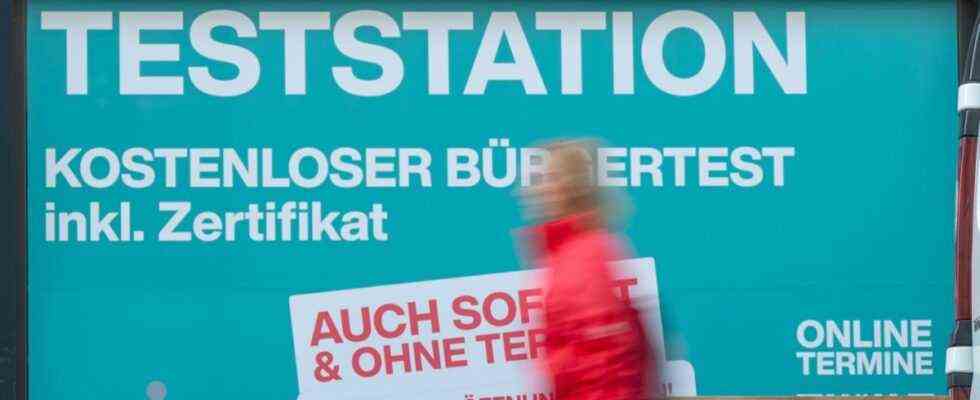A month ago, most experts from politics and science were still in agreement: It was unfair to let the community continue to pay for corona tests for adults who do not want to be vaccinated. After all, everyone has now had a vaccination offer. And the expensive tests could also be an incentive to persuade one or the other to get vaccinated. Only a few weeks later, the view of the tests and their costs has turned 180 degrees. Even if the majority of the population, 54 percent, is against the reintroduction of free corona tests for everyone, according to a survey by the opinion research institute Yougov, more and more politicians and experts are demanding that they be offered again.
The end of the reimbursement of costs for the citizen tests did not motivate those unwilling to vaccinate, said the President of the German Medical Association, Klaus Reinhardt, for example. Chancellor Angela Merkel and Health Minister Jens Spahn (both CDU) have also shown themselves to be open to reintroducing the free tests. And Janosch Dahmen, health expert for the Greens, wrote on Twitter: “The abolition of the free tests was wrong, the tests have to be reintroduced.” However, from now on, these should be issued with a QR code and read into the Corona warning app, according to Dahmen – this will improve control.
“Vaccinated people shouldn’t feel like they are in a false sense of security.”
For the virologist Hendrik Streeck, the free tests are absolutely essential. “In order to be able to somehow master the current infection situation, we need the most comprehensive testing possible,” said the director of virology at the Bonn University Hospital of the SZ. Financial hurdles would run counter to this. “If as many people as possible can be tested now, chains of infection can be better broken.”
The virologist fears that there is now a particularly high number of undiscovered corona cases in the country because of the cost-related tests. Uncovering these and isolating affected people is urgently needed. Vaccinated people should also take advantage of a test offer as often as possible. “We know that they too can become infected and contribute to the spread of the virus,” said Streeck. Vaccinated people should therefore not feel a false sense of security. But that is precisely what could promote access restrictions such as 2 G, in which only those who have been vaccinated and those who have recovered are allowed to attend an event. “I am concerned that this enables us to carry out too many infections and overlook the infected,” said Streeck.
Franziska Briest from the Rapid Tests Germany initiative, which has been campaigning for more rapid tests since the beginning of the pandemic, also agrees. “If we refrain from testing vaccinated people, we lose track of what is happening with the infection,” says the biochemist and cancer researcher. In the population, the risk of infection in the 2-G area is still underestimated – also due to communication that is sometimes deliberately played down. “You shouldn’t abuse tests as punishment or leverage for unvaccinated people,” said Briest. Rather, it should be clearly communicated that it is also important for people who have been vaccinated to be tested – especially if they meet older people or many people in a confined space. Free of charge is important: “We do not do the tests to do ourselves a favor, but to protect others. This third-party protection should not be financially charged to those who are tested.”

